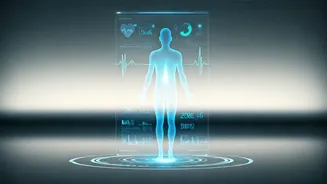What Is Dizziness?
Dizziness, or the feeling of being lightheaded, unsteady, or as though the world is spinning, can be a temporary annoyance or a sign of an underlying health
concern. It's often related to a drop in blood pressure when changing positions, such as going from sitting or lying down to standing. This rapid decrease in blood pressure, known as orthostatic hypotension, leads to reduced blood flow to the brain, causing dizziness. Several factors can contribute to orthostatic hypotension, including dehydration, certain medications, and underlying medical conditions. Dizziness is, in essence, your body's way of signaling that something isn't quite right. Understanding the specific type of dizziness you experience is crucial for determining the underlying cause and the most appropriate course of action, which could range from simple lifestyle adjustments to medical intervention.
Orthostatic Hypotension Explained
Orthostatic hypotension, the main culprit behind dizziness upon standing, happens because your body isn't effectively regulating blood pressure during position changes. Typically, when you stand up, your body quickly constricts blood vessels and increases your heart rate to ensure your brain gets enough blood. In orthostatic hypotension, this process fails, leading to a temporary drop in blood pressure. This drop can trigger symptoms like dizziness, lightheadedness, blurred vision, and even fainting. Dehydration, prolonged bed rest, and certain medications, such as those for high blood pressure or depression, can heighten the risk of orthostatic hypotension. Moreover, underlying medical conditions like heart problems, diabetes, or nervous system disorders can also play a role. Recognizing the signs of orthostatic hypotension and understanding its various causes is essential for managing the condition and preventing falls or injuries, which can be especially dangerous for older individuals.
Morning Wooziness Causes
Morning wooziness is often a result of factors that are particularly pronounced after a night's sleep. Dehydration is a key player, as your body loses fluids overnight. Similarly, the effects of medications taken at night can contribute to morning dizziness. Another factor is the position you're in for an extended period. When you lie down for hours, the sudden change to an upright position can trigger a drop in blood pressure, leading to dizziness. Furthermore, hormonal fluctuations, especially in women, and sleep disorders can also contribute to morning wooziness. Various medical conditions may also exhibit symptoms that are pronounced upon waking. Addressing morning dizziness often involves staying hydrated, modifying medication schedules as necessary, and slowly getting out of bed. These simple measures can significantly reduce the risk of feeling dizzy and improve your overall morning experience.
Medical Conditions Involved
Various medical conditions can cause or exacerbate dizziness when standing. Cardiovascular issues, such as heart failure, arrhythmias, and valve problems, can impair the body's ability to maintain blood pressure during positional changes. Neurological disorders, including Parkinson's disease, multiple system atrophy, and certain types of neuropathy, can also affect the autonomic nervous system, which controls blood pressure regulation. Diabetes, both directly and through its effect on the autonomic nervous system, can trigger orthostatic hypotension. Endocrine disorders, like adrenal insufficiency, can disrupt the hormonal balance needed for proper blood pressure control. Anemia, which reduces the blood's oxygen-carrying capacity, can also cause dizziness upon standing. If dizziness is persistent or accompanied by other symptoms, it's essential to consult a healthcare professional. Comprehensive medical evaluation to determine the underlying cause is crucial for effective treatment and management.
Preventing Dizziness
There are several practical steps you can take to prevent or reduce dizziness. Staying well-hydrated throughout the day is crucial, as dehydration is a common trigger. Avoid rapid changes in position; when getting up from a lying or seated position, do so slowly, giving your body time to adjust. Regular exercise can improve blood circulation and overall cardiovascular health, which aids in blood pressure regulation. Consider modifying medications, in consultation with your doctor, if they're suspected to contribute to dizziness. Eating small, frequent meals can help stabilize blood sugar levels, reducing the risk of dizziness associated with low blood sugar. Avoid consuming excessive amounts of alcohol, which can cause dehydration and disrupt blood pressure regulation. Using compression stockings can also help by promoting blood flow and preventing blood pooling in the legs. These strategies, when combined, can significantly improve the quality of life.
When to Seek Help
While occasional dizziness can be harmless, certain symptoms necessitate immediate medical attention. If dizziness is severe, prolonged, or accompanied by chest pain, shortness of breath, severe headache, confusion, or loss of consciousness, it's critical to seek medical help immediately. Frequent episodes of dizziness, especially if they worsen over time or are accompanied by other concerning symptoms, should also be evaluated by a healthcare professional. Any fall or injury resulting from dizziness warrants medical assessment. Furthermore, if dizziness significantly impairs your daily activities or affects your quality of life, it's important to consult a doctor. Comprehensive medical evaluation to identify the cause of dizziness is essential for effective diagnosis and appropriate treatment. Early intervention can prevent serious complications and improve your overall well-being. Do not hesitate to seek medical advice.















